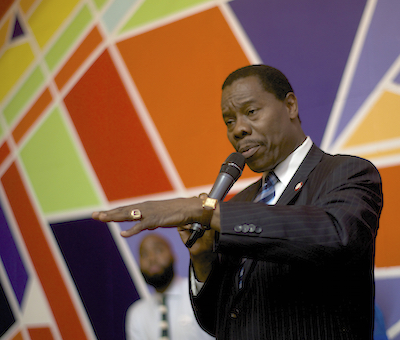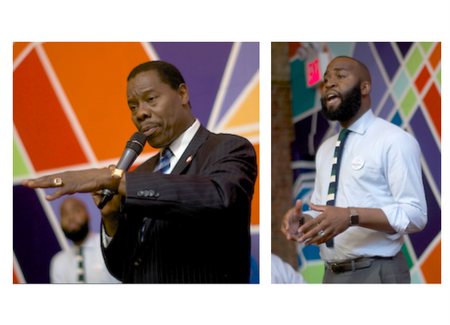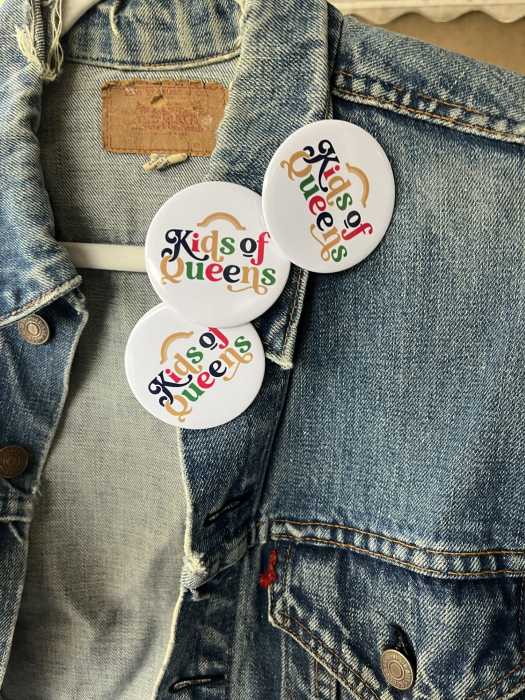Just a week after a second-place loss in Tuesday’s 40th District City Council primary election, candidate Brian Cunningham announced that he will take on incumbent City Council Member Mathieu Eugene as a third-party candidate on the Reform Party ticket in the Nov. 7 general election.
Eugene, seeking his third term, successfully fought off Cunningham and two other challengers in the primary to serve the neighborhoods of Prospect Lefferts Gardens, Flatbush, East Flatbush, Ditmas Park in the city council.
According to the unofficial primary vote tally, Eugene received 5,414 votes, or 41.1% of the electorate, while Cunningham received 30.3%, or 3,991 votes. Pia Raymond came in third with 2,956 votes, or 22.4%, and Jen Berkley received 6.2% of the vote, or 822 votes.

“The work is not done in terms of making sure that we have someone in city hall who’s going to represent the district and bring forward really good ideas,” said Cunningham. “I am still pumped up about running, because while my party line has changed for the purpose of this primary, our values still haven’t changed. Sixty percent of the district believes that the current leader in the last 10 years, has not taken us in the direction of those values.”
Cunningham argued that despite low voter turnout, a closed primary, and a fractured vote due to the number of candidates, six in 10 voters cast their ballots against Eugene. He said that this reveals a clear wish for change in the district.
He expressed the hope that fellow candidates Jennifer Berkley and Pia Raymond would support him in his third-party run. He said he had reached out to them after Tuesday’s results, and hoped to discuss their efforts to unseat Eugene.
“I think we all said, at the beginning of this run, that our number one objective was to see this Council Member unseated,” said Cunningham. “If those were their motives, and I believe they were, I believe that they will be even more fired up about the opportunity to see that happen in November.”
Interestingly, the Working Families Party (WFP), which has endorsed a variety of City Council candidates in other districts, including the local Assemblywoman Diane Richardson, chose to not endorse any particular candidate this election season.
Dorothy Siegel, co-chair of the WFP Brooklyn chapter, said that generally, opinions had been so varied that the consensus was to not endorse at all.
“In general, we wouldn’t endorse somebody against the incumbent, unless we thought they were largely better and likely to win. We weren’t going to try to overthrow Eugene, and we didn’t think the other candidates were necessarily going to do a better job, or worth supporting over Eugene,” said Siegel. “If things change, and people want to endorse one candidate or the other, it could be reopened.”

Though Cunningham did receive $25,025 in matching public funds, it wasn’t until fairly late in the race. He says that he hopes to communicate with the Campaign Finance Board to explore any further disbursements of funds that his campaign might qualify for.
Other obstacles facing a third-party run include Eugene’s endorsements from other Democrats, most notably Mayor Bill De Blasio, who is closley aligned with the WFP. But Cunningham argues that it’s the district’s voters that he cares about.
“I can only count on the people who live in our district, who understand our district, who feel the burdens of 80 percent rent increase, the lack of quality afterschool programs, and the lack of constituent services,” he said. “I’m leaning on those people, I’m not going to lean on institutional support, I’m leaning on the voters. That’s why I’m running again.”
Cunningham says he took a week to think things over with his wife, Stephanie, before making the decision. He plans to announce his run during a Town Hall gathering on Thursday.
Above all, he says he wants to make it clear to supporters and voters that though the campaign’s party line has changed, its values have not. He emphasized that he himself is still a registered Democrat, and believes in many of the party’s principles.
“Some of the reasons for not wanting to run independent were just understanding the dynamics of NYC politics, and how hard it is for people to see beyond party lines,” Cunningham said. “But nothing about the message has changed. For us it’s just about making sure that people be able to understand that being on a party line does not change my values, and I think that was the biggest hurdle.”










